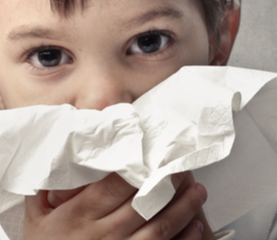To comprehend boogers, you must first understand mucus. There is a viscous, sticky substance called mucus that is produced in the nose, bronchi, and even in the digestive system. Many kids call nose mucous snot. Snot is produced in your nose and sinuses on a daily basis at a rate of approximately 1 liter per day.
Mucus is responsible for a number of functions that are quite important. It moisturizes the nasal lining and heats the air you breathe. The lungs are likewise shielded by mucus. Many microscopic particles, including dust, dirt, pathogens, and pollen, are present in the air that you breathe in via your nose. The lungs might get infected or inflamed, making it difficult to breathe, if they made it all the way to the lungs. Fortunately, snot traps this debris, preventing it from entering the lungs.
The mucus and some of the small hairs within the nose known as cilia surround the particle once it becomes trapped there. These hairs aid in the movement of mucus and trapped particles towards the front of the nose and the back of the throat. You end up having a booger when the dirt, dust, and other debris dry out and cluster together.
Boogers can have a soft and gooey texture, or they can be dry and crumbly. Actually, having boogers is a good sign that your nose is functioning normally. A tissue works best when you need to get rid of boogers from your nose. Picking your nose is not a good idea since boogers are full of pathogens and because doing so might cause bleeding.

Pros of Eating Boogers
Most people won't agree to take part in studies about eating boogers, so there isn't a lot of research about it. But University of Saskatchewan biochemistry instructor Scott Napper, in a lighthearted attempt to get his students to laugh, believes that eating boogers may actually be beneficial. According to an interview that was conducted by CTV-News Saskatoon, Napper stated that ingesting boogers exposes the body to mucus that contains microorganisms that have been trapped. In supposition, the body could get used to the bacteria in this mucus and build up an immunity to them. This would make it better able to fight off bacteria that cause illness in the future.
Picking your nose can sometimes seem more practical than using a tissue to clear it out (but it's not generally a good idea to ingest the mucus). If this is the case, it's best to do it alone and then wash your hands thoroughly afterward to prevent the transmission of any infectious infections.
Cons of Eating Boogers
When germs and viruses try to enter the body, the mucus in the nose serves as a filter. Consequently, a variety of potentially dangerous germs may be present in each snot.
Other possible dangers of ingesting boogers are:
- Infections
- Staphylococcus aureus is a bacteria that is found in greater concentrations in the nostrils of nosepickers.
- S. aureus does not always hurt people, although it may do so if someone accidentally cuts or scratches his nose.
- Staphylococcus infection symptoms involve:
- skin lesions that are red and swollen
- fever and pus-filled boils
- Staph infections may go away on their own. If not, a doctor might suggest topical or oral antibiotics.







0 Comments
For comments please reply here.......